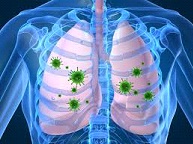Respiratory Syncytial Virus Symptoms, Causes, Diagnosis and Treatment

What Is Respiratory Syncytial Virus ?
RSV, abbreviated as Respiratory syncytial virus is an extremely contagious and common virus. This virus usually affects the respiratory area of the children when they are about to celebrate their second birthday. However, in many youngsters and babies, the symptoms of this infection are similar to the cold. Though, in very rare cases, the Respiratory syncytial virus infection will possibly cause serious complications, for example: bronchiolitis (that is a small airways inflammation of the pneumonia, or lungs, that possibly turn out dangerous for individuals)
This virus is extremely dangerous for:
- Early infants.
- Kids above 2 years who are suffering from lung or heart disease since childhood.
- Young Children and babies whose immune systems are weak because of medical treatment or sickness.
- Children under 8 to 10 weeks of life.
What Are The Symptoms Of Respiratory Syncytial Virus ?
The infection RSV cold-like symptoms usually lasts for a week. It includes:
- Cough and.
- Runny nose,
But if you notice the below mentioned serious symptoms than you should call the physician:
- High fever.
- Difficulty breathing.
- Thick secretion from the nose.
- Cough with gray, green or yellow mucus.
- Unusual inactivity or irritability.
- Refuse to take mother feed.
- Dehydration Signs such as, no tears while crying, less urine output, dry skin.
What Are The Causes Of Respiratory Syncytial Virus ?
Respiratory syncytial virus usually enters through your mouth, nose or eyes in your body. It can easily spread when there are infectious respiratory secretions, for instance: discharge from sneezing or coughing, because it might pass or inhaled to others via direct contact, like hug or shaking hands.
Furthermore, the virus can stay for many hours on different objects like toys and countertops. You can easily obtain this virus if you touch your eyes, nose or mouth after contacting a contaminated object.
How Respiratory Syncytial Virus Is Diagnosis ?
Your physician may diagnose RSV (respiratory syncytial virus) after performing some physical examination and the infection time. While performing certain examination, physician with the help of stethoscope, may listen to the lungs sound to check for abnormal or wheezing sounds.
For further confirmation, doctor may go for:
- Painless skin monitoring which is known as pulse oximetry to confirm oxygen levels available in the bloodstream is lower than usual.
- Blood tests to look for white cells range or to check that whether bacteria and viruses are present or not.
- Chest X-rays to look for chest infection or pneumonia.
- Laboratory tests.
How Respiratory Syncytial Virus Is Treatment ?
The respiratory syncytial virus treatment generally includes self-care actions as supportive care to give comfort to your child. However, in serious cases, it is important to go for hospital care.
Supportive care
Your physician may suggest an OTC medication therapy for example acetaminophen to decrease fever. Also, Doctor may suggest an antibiotic to cure with the bacterial complication like bacterial pneumonia.
Hospital care
In serious RSV cases, Hospital care is essential to offer intravenous fluids as well as humidified oxygen. Moreover, the hospitalized patients may also be on mechanical ventilation if there is difficulty while breathing.
By : Natural Health News




